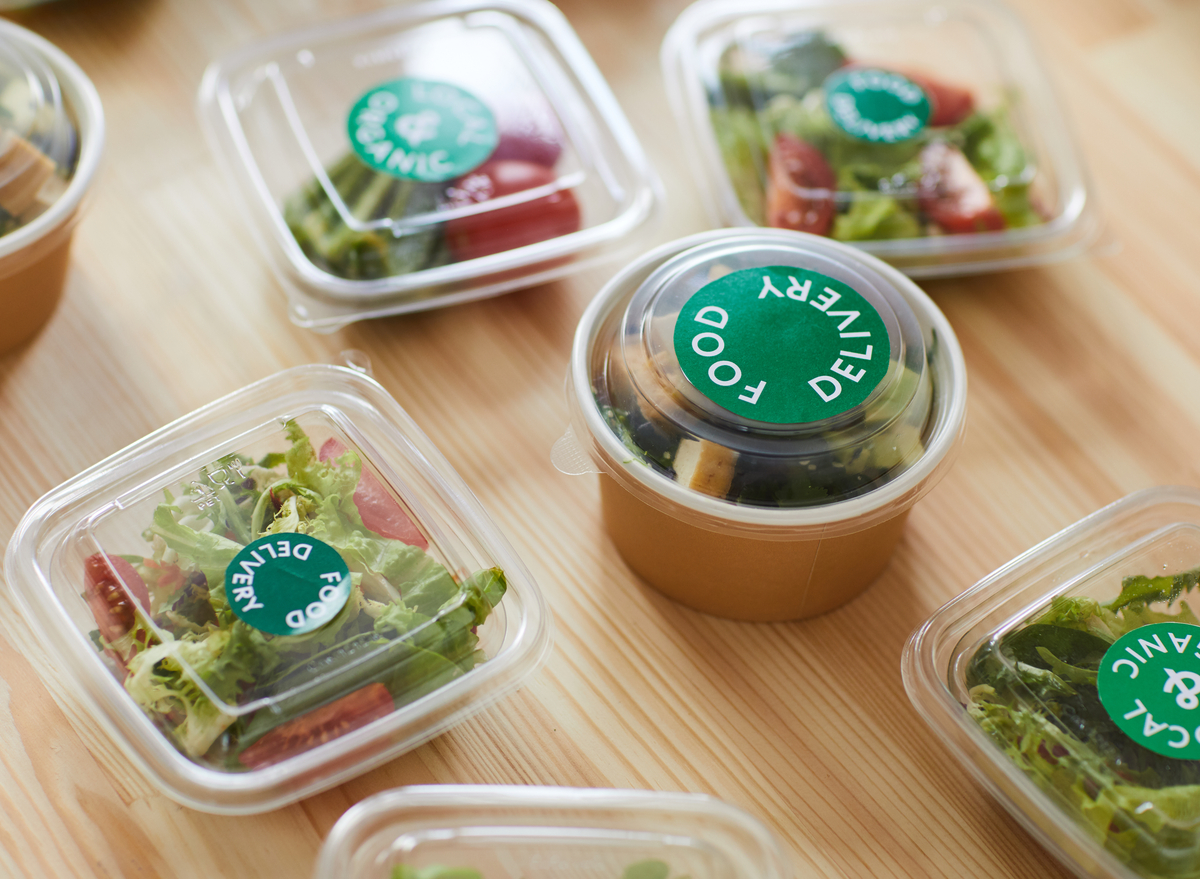The #1 Worst Eating Habit That Accelerates Prostate Cancer, New Study Says

It’s impossible to prevent illness altogether, but you can adopt better habits now if you want to protect your health in the long term. When it comes to prostate cancer, for example, research shows that eating well and exercising can lower your risk. Even if you’ve already been diagnosed, these findings offer hope that there are certain steps you can take to slow the disease from progressing.
New research suggests that exposure to chemicals called PFAS (perfluoroalkyl and polyfluoroalkyl substances), which can be found in plastic food containers and nonstick cookware, among other places, can make prostate cancer grow three times more quickly than cells that haven’t been exposed to these dangerous chemicals.
The study, published in the journal Nutrients, examined the progression of the disease in mice exposed to PFAS, as well as those that were not. Researchers found that the disease developed the most quickly in mice exposed to PFAS that were fed a high-fat diet. That is, the diet meant to imitate the Western diet actually magnified these chemicals’ harmful effects.
“More than 99% of the U.S. population already has PFAS circulating in their system,” study author Zeynep Madak-Erdogan, PhD, told Eat This, Not That! in an interview. “However, some people have higher than normal population because of occupational exposure, living in areas that have contaminated water, or consuming more fast food or food contaminated with PFAS. If they also consume more high fat-containing diets—i.e. Western diets—they are more likely to suffer from more aggressive types of prostate cancers.”
If you want to switch up your eating habits to avoid this risk, one popular alternative to the typical Western-style diet is the Mediterranean diet, which has the added bonus of being associated with a wide range of health benefits, including boosting cognitive function, lessening your risk of developing depression, and even improving erectile performance.
Another option is the “Prudent” diet, which features similar foods to the Mediterranean diet—legumes, vegetables, fruit, poultry, fish, and whole grains—and is associated with a longer lifespan and a lower risk of dying from heart disease.
“There are issues that have been linked to [PFAS] exposures . . . liver damage, high cholesterol, diabetes, various cancers, thyroid disease, asthma, immune system dysfunction, reduced fertility, low birth weight, as well as effects on children’s cognitive and neuro behavioral development,” Robert Gould, MD, associate adjunct professor at the University of California San Francisco School of Medicine, told Eat This, Not That!. Gould is also the president of the San Francisco Bay Area Physicians for Social Responsibility (PSR) chapter, as well as a member of the board of directors of the national organization.
Gould noted that the best way to protect individuals from these harmful effects is by changing policy, adding that the Green Science Policy Institute offers recommendations for how you can personally avoid these chemicals. To start with, Gould recommends steering clear of nonstick cookware and takeout food that comes in plastic or plastic-lined containers.
For more on potentially dangerous substances to avoid, check out The 10 Most Toxic Ingredients Lurking In Fast Food.








